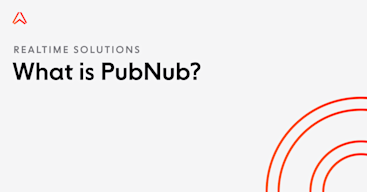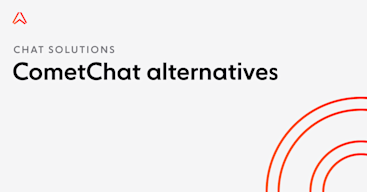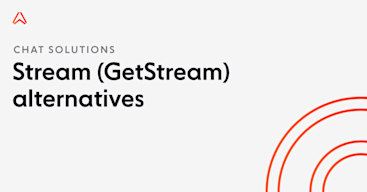- Topics
- /
- Realtime technologies
- /
- Azure SignalR pricing: What you need to know
Azure SignalR pricing: What you need to know
Azure SignalR is an Azure-hosted, fully-managed realtime framework built on top of an open-source software library for Microsoft ASP.NET. Whether you’re building small-scale applications or scaling up to enterprise-grade projects, understanding Azure SignalR’s pricing model is essential to managing costs effectively. Below, we break down Azure SignalR’s pricing structure and highlight key considerations to help you determine if it’s the right fit for your needs. (If you're looking for a more general breakdown of Azure SignalR against competitors, check out our dedicated alternatives page.)
How Azure SignalR pricing works
Azure SignalR operates on a consumption-based pricing model, with costs scaling based on the number of messages and concurrent connections you use. Their paid plans offer up to 1 million messages free per day, with additional costs beyond that, a concurrent connections cap, and a daily service charge. Here’s a detailed breakdown of Azure SignalR’s pricing features, and the cost-optimization features that could lead to a better deal for your data:
Pricing breakdown
Azure SignalR's offering | Why is this important? | |
|---|---|---|
Pricing model | Consumption-based Azure SignalR has a consumption-based model which charges based on the number of units (messages) you send. This is coupled with a limit on the number of concurrent connections allowed. | The pricing model should align with your project's real consumption and usage patterns in order to be cost-effective. If consumption peaks in a month, the pricing model should look at holistic consumption patterns instead of charging you only for the peak. |
Free plan | ✅ Yes. | With a free plan, you can test the service’s functionality and compatibility with your project before committing to a paid plan. |
Pricing tiers | Free: 20k messages and 20 connections per day. Standard: 1 million messages and 1k connections per day per unit, with extra messages available at $1/day. $1.61 a day service charge. That means 1 unit allows up to 30 million messages over 30 days with a ~$48 service charge. Premium: 1 million messages and 1k connections per day per unit, with extra messages available at $1/day. $2 a day service charge. That means 1 unit allows up to 30 million messages over 30 days with a $60 service charge. The difference between Standard and Pro lies in their fully-managed auto scaling, availability zone and geo replication features, which are all only available on the Pro plan. | Find the right pricing tier for your scale. |
Per-minute pricing | ✅ Yes. Azure SignalR charges on a per-second basis, based on total consumption, including connections and messages sent, and bills at the end of every day. | Per-minute pricing ensures that you are only paying for what you use, with the most granular costs possible. |
Enterprise plan | ⛔ No. This isn’t listed on their site, but you can contact sales to discuss a custom plan. It’s unclear what this entails. | An enterprise plan ensures that you can support your realtime service as it scales out. |
Azure SignalR's cost-optimization features | Why is this important? | |
|---|---|---|
Server-side batching | ⛔ No. Not available, leading to potentially higher message delivery costs. | Server-side batching queues and sends individual messages sent at the same time in batches, which significantly optimizes message delivery costs. |
Delta compression | ⛔ No. Not available, leading to potentially higher bandwidth costs. | Delta compression on messages sends only the changes between the previous and the current messages (in updates, for example), which significantly reduces bandwidth costs. |
Key considerations for Azure SignalR pricing: is it right for you?
Azure SignalR does offer generous limits on units and concurrent connections in their paid plans, and could be an option for those looking to stay within the Microsoft ecosystem, but it does come with a few downsides worth mentioning:
Low free plan limits: The free plan only allows for 20 concurrent connections, which limits proof of concept flexibility before opting for a paid plan.
Daily service charge: The service charge on top of the consumption costs can be off putting, especially when many of the reliability services needed for realtime infrastructure (e.g. autoscaling) are only available on the Premium plan, which comes with an elevated service charge.
In addition to this, the fact that critical infrastructural features like geo replication and managed auto scaling are only available on the Premium plan may be a turn off for those specifically seeking a highly-reliable and affordable solution. Azure SignalR still requires a fair amount of setup and configuration to get things up and running. While Microsoft handles hosting, scalability, and load balancing automatically, developers are still responsible for integrating SignalR into their applications—this includes setting up hubs, managing client connections, and implementing messaging patterns. Authentication, authorization, and handling connection events also require manual setup, making it more of a DIY solution than a truly plug-and-play experience.
Alternatives to Azure SignalR for realtime experiences
There are lots of alternatives to Azure SignalR for building realtime experiences, including Pusher, Firebase, and Microsoft Azure Web PubSub. Their strengths depend on your specific use case. Only one or two providers offer top reliability and scalability, however. If you’re looking for something that gives you more precise control over costs and provides highly fault-tolerant infrastructure, it’s worth exploring Ably.
,Why consider Ably?
Ably offers some unique advantages that set it apart:
Cost control: With usage-based billing, Ably makes sure you only pay for what you use. This is especially helpful if your traffic tends to fluctuate—no surprises on your bill.
Cost optimization features: Ably’s server-side batching and message compression means that you can lower costs on data delivery, saving you even more on your usage bill.
Multi-region high availability: Ably’s global infrastructure is designed to keep things running even if there’s an issue in one region. That’s a big step up from single-region setups.
Granular control over QoS: Need messages delivered in a specific order or with a certain level of reliability? Ably’s got you covered.
Volume discounts: The more you use the platform, the lower your unit costs become, which keeps Ably affordable, even at extreme scale.
High scalability & availability: Built and battle-tested to handle millions of concurrent connections at scale.
Sign up for a free account today to explore Ably’s features, and visit our pricing page to get a sense of how affordable we can be for you.
Recommended Articles

Guide to PubNub: What it is, how it works and when to use it
PubNub is a platform for building realtime applications. Discover what it does, how it works, its use cases, limitations, and suitable alternatives.

CometChat alternatives: 5 competitors to consider in 2024
Discover the best solutions you can use instead of CometChat to build web-based and in-app chat experiences.

Stream (GetStream) alternatives: 5 competitors to consider in 2024
Discover the best solutions you can use instead of Stream to build web-based and in-app chat experiences.